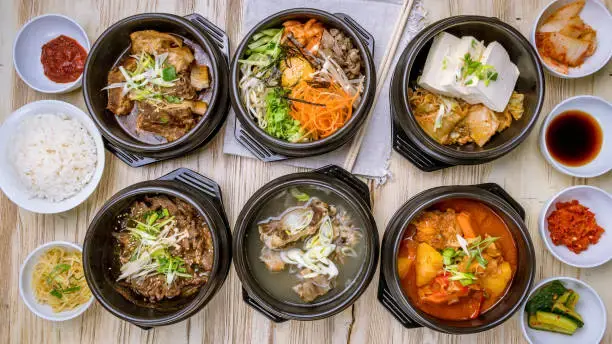Western Influences & Processed Foods: How Globalization Changed Korea's Diet.
- ananya sahaya
- Mar 26
- 2 min read
Updated: Mar 28
South Korea's food culture has long been rooted in tradition hearty bowls of kimchi jjigae, carefully prepared banchan, and the art of slow fermentation. But in the last few decades, globalization has brought about a major shift. With Western influences seeping into daily life, processed foods and convenience meals have become the new norm, reshaping Korean eating habits in unexpected ways.

The Rise Of Fast Food & Instant Meals
The first McDonald's opened in Seoul in 1988, marking the beginning of a fast-food boom. Since then, global chains like KFC, Burger King, and Domino's have gained popularity, introducing Koreans to burgers, fried chicken, and cheesy pizzas, foods far removed from their traditional diet.
At the same time, Korean companies responded to these changes by creating their own versions of fast, processed meals. Instant ramyeon (ramen), frozen dumplings, and microwaveable tteokbokki became staples in Korean households, catering to a generation that prioritized convenience over home-cooked meals.
Processed Foods & Changing Eating Habits
As more people embraced Western-inspired diets, there was a noticeable shift in food consumption:
Increased meat consumption- Traditionally, Koreans ate a vegetable-heavy diet with limited meat. Today, beef and pork consumption have skyrocketed, largely due to fast food and barbecue culture
Sugar & dairy rise- Items like cheese tteokbokki and sweet garlic bread are Western-inspired additions that didn't exist in traditional Korean cuisine.
Convenience over slow food- More people rely on frozen meals and instant foods, reducing the time spent preparing traditional, nutrient-rich Korean dishes.
The Cultural Balancing Act
While Western processed foods have become a major part of modern Korean life, traditional flavors persist. Korean fast-food chains like Lotteria serve bulgogi burgers and convenience stores stock instant bibimbap, blending convenience with local flavors.
The question remains as processed foods became the norm will Koreas traditional diet survive or will it continue to evolve in new unexpected ways?



Comments